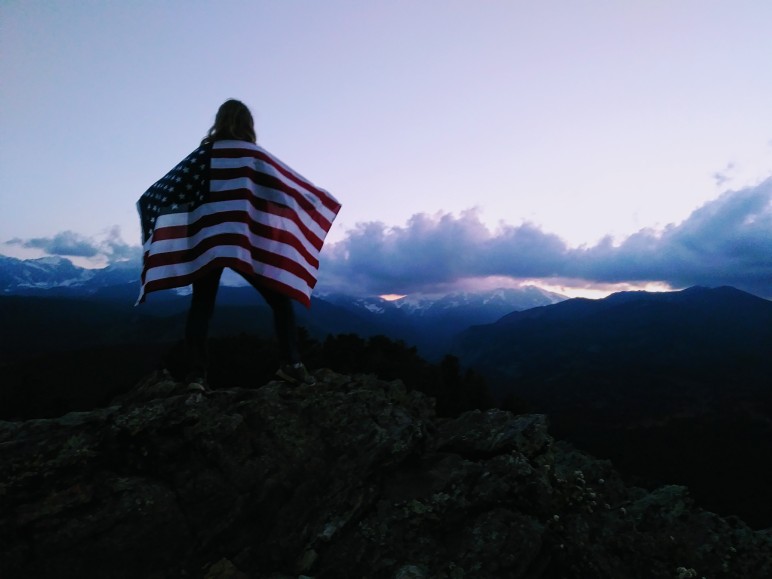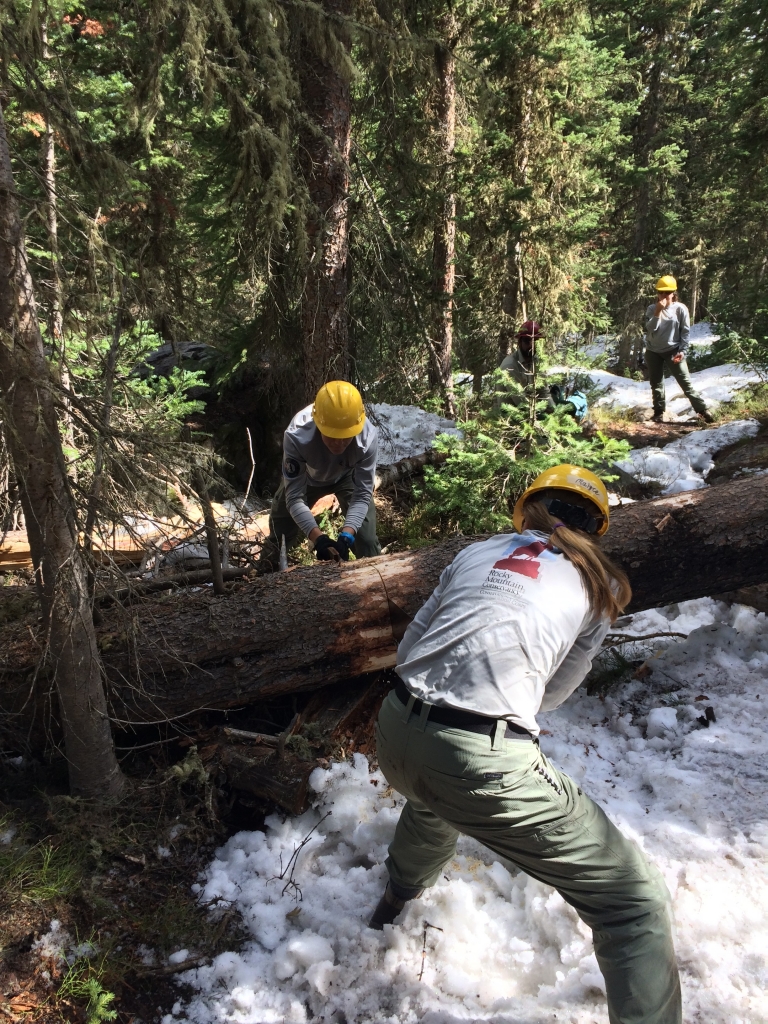I think that one of biggest highlights of my experience so far was way back in the beginning of the season on the second day of crosscut training. Not only was it our first day where we actually kind of got to work but it also was my first time getting to crosscut. In addition to that, once we got passed the ridiculously steep part of the trail, hiking that area became quite enjoyable. The scenery was absolutely gorgeous and hiking through and working in waist-deep snow was so much fun! This is one day that I will always remember and cherish.
Another highlight was our first hitch. The hike in sucked…a lot. But it was all so much better when we got to our campsite. It was so beautiful, and waking up to the sun gleaming into my tent and looking out from my tent out to the lake and the beautiful, serene sunrise beyond the mountains was such a wonderful experience. In addition to this, we got to crosscut on the first and second days of hitch, which I enjoyed so much and appreciate even more now that we haven’t done it in so long.
Our second hitch is also rather memorable, but for rather different reasons. The hitch itself was a difficult one. We had so many issues with our bear hang, our water storage bag was lost down the river, one of our cooking stoves broke, my finger got smashed between two large rocks, and the work was beyond boring. But this hitch also really did wonders in bringing our crew together and dispelling the tension between us. Since this hitch, our crew has been so much closer and has gotten along so much better. It did, unfortunately, come with the price of collective dislike of our crew leader, but I really think it all has turned out for the better, overall.
Midweek also stands as a rather significant highlight of my summer experience insofar. For one, it was a nice break from work and I learned a lot during the career tour and the classes. It was also really nice to see everyone from the other crews again. I also got to go horseback riding, which I had been wanting to do all summer and it so much fun! And then there was July 4, which goes down in the books as one of, if not the, best of all July 4ths I’ve ever had. In addition to that, I also got to see Spider Man: Far From Home in the historic theater in Estes Park, which was pretty awesome.
Finally, just this past week, I found working at Meadow Trail to be rather exciting as well. Swamping for one of our USFS supervisors and seeing trees being felled up close and personal was such an awesome experience and made for a great change of pace. I also got to debark some trees, which is pretty fun. In addition to this, I’ve really seen such great comradery with our crew this week, with one great example being when one of the girls just yelled in frustration at a rock that wouldn’t come out and then another guy yelled back, then I yelled, and then we were all just yelling out, releasing frustrations with that trail and then just laughing at our shared state of mind. Good times!
If you ever find yourself in Rocky Moutain National Park, horseback riding is a really fun activity. Here’s a link!




